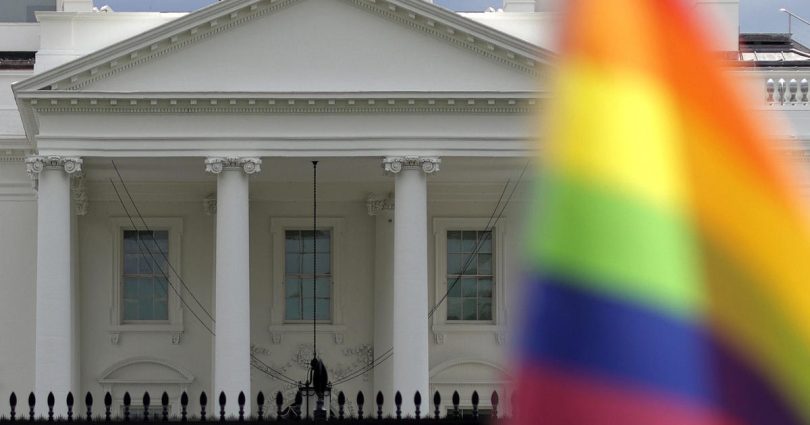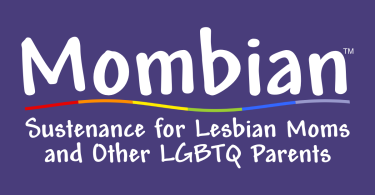Lucian Holness woke up to a daunting reality on Nov. 6. Acute stress led to the mix of emotions that struck the transgender marketing manager as they learned President-elect Donald Trump — never a reliable ally to the LGBTQ community and an increasingly hostile figure for transgender Americans — had won a second term in the White House.
“I went into this election fully expecting Trump to win,” said Holness, who lives in New Jersey and began to medically transition during the pandemic, an experience they called “liberating” and “amazing” after a long time spent “feeling like something was wrong.”
Assuming Trump would take the presidency again was a self-preservation tactic, Holness told CBS News but it did not necessarily soften the blow.
“Maybe I thought it would be a closer race than it was. And just seeing how many states we were losing, the immense way that we lost … that really destroyed me,” Holness said. “And for several days after I had no hope in humanity.”
After the election, commentators and analysts suggested Trump’s decisive victory against Vice President Kamala Harris was broad evidence of a thirst for economic change across the bright red map of the country. To win, he had punctured the Democratic “blue wall” and flipped all seven battleground states, with CBS News exit polls indicating he had received support from more of the electorate than ever.
LGBTQ voters were among the only demographic groups that did not stray toward Trump when they cast ballots in the presidential contest this year. Black women also overwhelmingly backed Harris at the polls.
“Black voters and queer voters understood the assignment in this election, and our assignment was to defeat the great threat to our safety and freedom that Trump poses, so that we can fight for what all of us need to be safe and free,” said Melanie Willingham-Jaggers, the executive director of GLSEN, an LGBTQ advocacy group focused on supporting and educating young people. Willingham-Jaggers identifies as nonbinary and queer.
The LGBTQ community has historically voted Democrat but unlike most other demographic trends this year, LGBTQ support for the party’s presidential nominee rose substantially sa 2020. CBS News’ national exit polls showed 86% of people who identified as lesbian, gay, bisexual or transgender voted for Harris, while just 13% voted for Trump. Echoing most Harris voters, a majority of LGBTQ people said they feared what could happen during another Trump presidency.
People in the LGBTQ community told CBS News they see the recurrence of Trumpism as a tangible affront to their basic human rights. The implications feel particularly urgent to transgender Americans, whom the president-elect and his affiliates categorically targeted throughout the campaign.
“Unfortunately, these individuals are sadly misinformed,” said Karoline Leavitt, a spokesperson for the Trump-Vance transition team, in a statement to CBS News. “President Trump campaigned on being a president for ALL Americans and will unify our country through great success.”
“I don’t feel welcome here”
The Trump campaign ran advertisements attacking trans people for months ahead of Election Day, in a move that likely cost at least tens of millions of dollars. Criticized for scapegoating, one TV ad bore a tagline interpreted as an attempt to sow division: “Kamala is for they/them. President Trump is for you.”
The advocacy organization GLAAD counted 225 defined attacks on the LGBTQ community by Trump during his first White House term and latest presidential campaign, in terms of policy decisions and rhetoric, which transgender Americans and others who are LGBTQ told CBS News is damaging on its own. The Trevor Project saw a 700% spike in crisis calls throughout the day after the election, and research from the organization found recent politics negatively impacted the well-being of 90% of LGBTQ young people, while anti-trans state legislation in the last year drove up suicide attempts among transgender and nonbinary youth by as much as 72%.
“I don’t feel welcome here,” said Holness.
Although New Jersey is a sanctuary state for LGBTQ rights, and Gov. Phil Murphy last year declared it a safe haven for transgender and nonbinary people seeking gender-affirming care, Holness is still concerned about the ways in which a second Trump administration and Republican Congress could potentially work to break down that refuge.
“What people think being trans is, versus the actual experience of being trans, are so vastly different. And if people would just listen to us, I think they’d be surprised how much we are the same as them,” Holness told CBS News. “It took me a while to take Trump seriously, but after seeing the rise in trans hate crimes, and the rise in anti-trans legislation, the bounty out on trans people just for existing, you know, it’s become really scary.”
Trump’s anti-LGBTQ and specifically anti-trans positions stretch back to his first term in the White House, when he scrubbed federal agency sites of representation and proceeded to roll back protections for LGBTQ people, among other policy decisions that clamped down on their abilities to live and work freely.
But vitriol toward the community became integral to Trump’s politics and his overall public brand during the latest presidential bid.
Health care access under siege
As Trump doubled down on anti-trans rhetoric in his speeches, he backed conservative proposals to restrict access to healthcare for transgender people and punish doctors who give minors gender-affirming care.
“The number one issue, of the many that the trans people I spoke with are worried about, is access to the health care that we need to live. This is not an abstraction. It is not a culture war. It is not a political football,” said Gillian Brandstetter, a communications strategist at the American Civil Liberties Union. “It is very much a problem of material need. Can we access hormone therapy? Can we maintain our relationship with our doctors? Can we maintain our insurance coverage?”
Trump pushed during his last administration to federally redefine gender along binary lines that would exclude transgender identities, effectively denying trans people legal recognition and upholding an outdated characterization of “biological sex,” even though the medical field has expanded its view of the spectrum of gender identity. Renewed promises made by the campaign this year are fueling panic that he will attempt to implement it nationally again.
Ryan Lyman, a trans college student in New York City who volunteered for the Harris campaign and said he has “passing privilege” after beginning hormone therapy at 17 and undergoing top surgery, told CBS News trans people elsewhere in the country are preparing for the worst case scenario. “Passing privilege” in this instance means Lyman may avoid some of the prejudice other transgender people face if he is publicly perceived to be a cisgender man.
“I’ve seen a lot of people on the Internet lately who are going back to their assigned gender presentation,” Lyman said. “There is a part of the community that lives in the Deep South, in red states, who have to go stealth for their own safety. And I do not judge them at all.”
A decision that could potentially work to protect certain trans rights before Inauguration Day is the outcome of United States v. Skrmetti, a landmark case set to go before the Supreme Court in December where justices will hear a challenge to Tennessee’s ban on gender-affirming health care for transgender people younger than 18. The decision could have wide-ranging impacts at a time where almost half of U.S. states have enacted laws to limit access to various aspects of gender-affirming care, like hormones, puberty-blocking drugs or surgery.
An uncertain future
Many LGBTQ people are anxious about how Trump could alter fundamental parts of their lives, out in the world and at home.
A growing number of transgender social media users have now spent the better part of a month sharing guidance on how to update licenses, passports and other legal documents to reflect their names and pronouns. LGBTQ couples told CBS News they are having conversations about whether they should rush to get married before January’s inauguration and what family planning might look like once Trump is sworn in.
Lee Robinson, a comedian moving from Denver to New York City, said they were already considering some of those big questions within days of the election. They had started to discuss their options with their girlfriend, too.
“It’s not just marriage, it’s parentage and fertility stuff, and queer adoption,” said Robinson. “It just totally throws off our ability to plan for our futures when this kind of thing happens.”
Everyone who spoke to CBS News for this story shared concerns about losing discrimination protections under a second Trump administration. They also wonder what it would mean if the Supreme Court’s 2015 marriage equality ruling came under review and marriage rights, like abortion rights, were returned to the states.
An updated policy rundown on Trump’s 2024 campaign website called Agenda 47 offers a blueprint of his “20 Core Promises To Make America Great Again.” Among the items on that list, Trump pledges to “keep men out of women’s sports” and cut federal funding for schools “pushing critical race theory, radical gender ideology, and other inappropriate racial, sexual, or political content on our children.”
These items echo GOP state lawmakers and government leaders who have sought to bar trans youth from athletic teams that align with their gender identities and ban LGBTQ and racial identity-focused lesson plans and books from school curriculum. The First Amendment’s freedom of speech and religion clauses have been used in high-profile court cases to justify anti-LGBTQ discrimination.
They are not just concepts. Anti-LGBTQ doctrines embraced at Republican rallies have in recent years been codified across the country, keeping transgender children off of sports teams and away from bathrooms aligned with their gender identity. In Florida, laws have been passed to take transgender-focused curriculum out of schools; a legal settlement earlier this year clarified that students and teachers would be able to discuss gender identity as long as it’s not part of the curriculum.
Capitol Hill is not immune, as Rep.-elect Sarah McBride, a Delaware Democrat set to become the first openly transgender person in Congress, faced a swift Republican-led attempt after her trailblazing win to restrict her restroom use in the Capitol Complex.
“It’s dehumanizing people,” said Sarah Kate Ellis, the president and CEO of the advocacy organization GLAAD. “They want to treat us as second-class citizens, question our dignity and respect.”
Ellis said measurable repercussions in the balance, like medical coverage and equality under the law, are joined by intangible consequences that could trickle down generations.
“I think of my kids, as my wife and I’s marriage is under fire, but our neighbors’ marriage isn’t under fire. It’s awful when you think about that,” she shared. “So, my kids, in their understanding, see us as less than the family next door because they have two moms versus a mom and a dad, or a single mom. I just think all these are their culture wars, not ours.”
Project 2025
Experts often attribute the intensification of Trump’s anti-LGBTQ platform to his ties with right-wing religious groups like the Heritage Foundation, an organization with a long history of espousing anti-LGBTQ laws that helmed the presidential transition proposal Project 2025.
Project 2025 is a 900-page policy handbook developed by a team linked to more than 100 conservative groups, to which Trump had denied connections, though he is hiring several of its architects to fill key staff positions in the next administration. The book calls for an overhaul of the federal government to “restore family as the centerpiece of American life.” Its socio-political vision for how to do that, introduced on the first page of Project 2025, directs government officials to reject transgender people and LGBTQ identities across the board.
“The next conservative President must make the institutions of American civil society hard targets for woke culture warriors. This starts with deleting the terms sexual orientation and gender identity (“SOGI”), diversity, equity, and inclusion (“DEI”), gender, gender equality, gender equity, gender awareness, gender-sensitive, abortion, reproductive health, reproductive rights, and any other term used to deprive Americans of their First Amendment rights out of every federal rule, agency regulation, contract, grant, regulation, and piece of legislation that exists,” the document states, at the outset of its opening chapter.
Although Trump attempted to distance himself from Project 2025 on the campaign trail, even going so far as to call some of its proposals “abysmal,” the blueprint is compatible with the Republican Party agenda. But at the same time, Trump also plans to nominate Scott Bessent to be treasury secretary. He’s a billionaire and former George Soros hedge fund manager and if confirmed, he’d be the first openly gay person to serve in this role.
“We should absolutely take Trump at his word,” said Willingham-Jaggers, of GLSEN. “We should take Project 2025 at its word. We should expect a full court press to get everything outlined in Project 2025, created into policy and enacted as the starting point, not the end point, as the starting point. That’s part one. That’s what I’m concerned about.”







